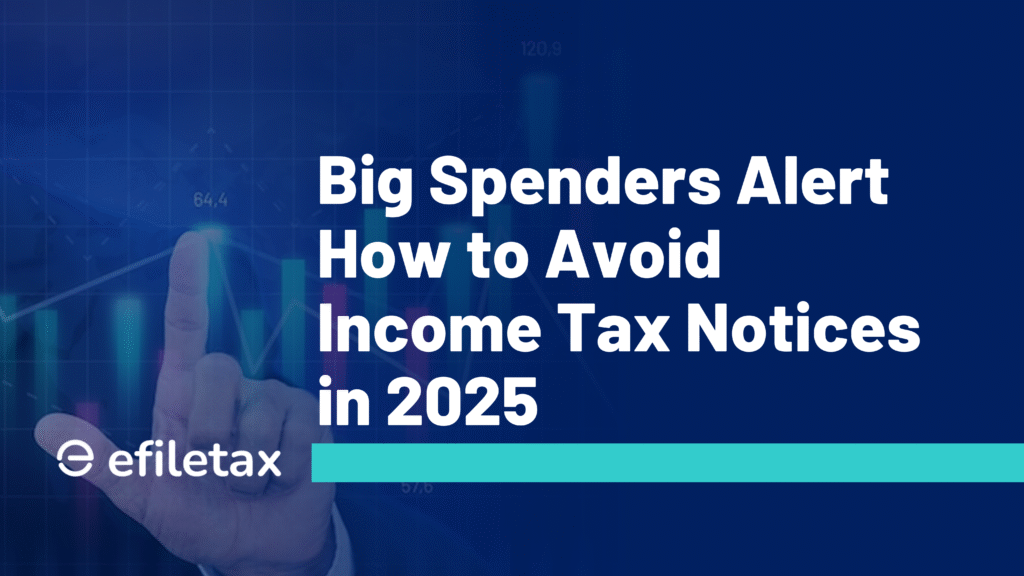
High Value Transactions Under Income Tax Lens
The Income Tax Department has ramped up surveillance on High Value Transactions to curb tax evasion and ensure better compliance. If you’ve spent big recently, understanding these rules can save you from unexpected notices.
What Counts as High Value Transactions?
As per CBDT guidelines, the following are flagged as high value spends:
- Cash deposits over ₹10 lakh in a savings account in a financial year.
- Credit card payments exceeding ₹1 lakh in cash or ₹10 lakh by other modes annually.
- Purchase of shares, bonds, or mutual funds worth over ₹10 lakh.
- Purchase of property valued at ₹30 lakh or more.
- Fixed deposits over ₹10 lakh in a year.
Financial institutions, property registrars, and banks must report these under the Statement of Financial Transactions (SFT).
How to Avoid Income Tax Notices on High Value Transactions
Stay worry-free with these simple practices:
✅ File your ITR on time — match declared income with actual spend.
✅ Keep supporting documents — bank statements, property deeds, credit card bills.
✅ Respond promptly to e-verification queries or notices.
✅ Use PAN for transactions — this links your spends to your tax profile correctly.
✅ Avoid large cash transactions — prefer online or cheque payments.
What Happens if You Ignore?
- Mismatch alerts under Annual Information Statement (AIS).
- Scrutiny notices demanding source explanation.
- Possible penalties for undisclosed income under Section 270A.
Expert Tip on High Value Transactions
“Always cross-check your Form 26AS and AIS before filing returns. This simple step prevents mismatch-related tax headaches.” — Efiletax Expert.
Recent Updates on High Value Transactions
📌 CBDT now uses advanced AI-driven systems to flag suspicious spends in real-time.
📌 Non-compliance may trigger Section 148A notices for reassessment.
📌 Major spends during weddings, overseas trips, or luxury car purchases are under watch.
For more, check this official CBDT circular.
FAQs on High Value Transactions
Q1: Will cash wedding gifts be taxed?
Gifts above ₹50,000 may be taxable if not from close relatives. Declare wisely.
Q2: Can I avoid scrutiny if I spend through credit cards?
No. Card payments above limits are reported too.
Q3: What should I do if I get a notice?
Don’t panic. Reply online within the due date or take help from Efiletax.
Conclusion
With stricter monitoring, transparency is key. Always declare income honestly, track your big spends, and file returns accurately.
Need help with filing? ✅ Talk to Efiletax experts today!
Summary
High Value Transactions now face tighter tax scrutiny. Avoid notices: file returns on time, match income with spends, and keep records ready.